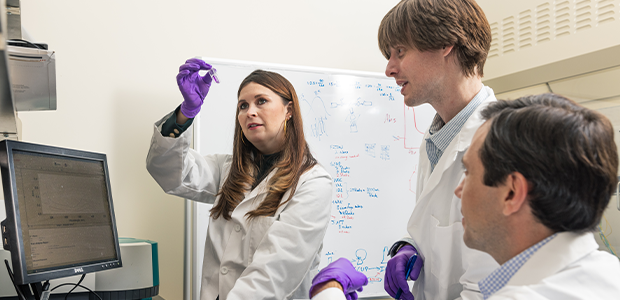
LambdaVision raises $7M seed to manufacture artificial retina in space
LambdaVision, a biotech innovator leveraging microgravity to manufacture its investigational protein-based artificial retina to help patients regain sight lost to retinal degenerative diseases, has closed a $7 million seed funding round co-led by Seven Seven Six and Aurelia Foundry Fund, with additional support from Seraphim Space, providing runway into 2027.
Millions of people worldwide lose their sight each year to retinal degenerative diseases like retinitis pigmentosa (RP) and age-related macular degeneration (AMD), with few effective treatment options. The funding will advance preclinical development and scale up space-enabled manufacturing of its artificial retina.
“Support from Seven Seven Six, Aurelia Foundry Fund, Seraphim Space, and other investors in the round underscores the growing recognition of the potential for space-based biomanufacturing to accelerate the development of life-changing therapies on Earth,” said Nicole Wagner, Ph.D., CEO, LambdaVision. “This seed round funding will help bring us closer to clinical trials and continue to pioneer scalable production of our artificial retina, including manufacturing techniques implemented in low-Earth orbit.”
By leveraging microgravity environments aboard the International Space Station (ISS), LambdaVision produces highly uniform, 200-layer protein thin films, a manufacturing capability challenging to replicate on Earth. This breakthrough accelerates the development of LambdaVision’s artificial retina for millions affected by RP and AMD. Nine successful ISS missions, in partnership with NASA and implementation partner Space Tango, have validated the process and refined LambdaVision’s space-based manufacturing methods, paving the way for scalable production and future clinical trials
“LambdaVision is redefining what’s possible at the intersection of space and human health," said Katelin Holloway, Founding Partner at Seven Seven Six. "Their mission to restore vision through space-based biotechnology is deeply meaningful to me and a powerful example of how innovation beyond our planet can transform lives here on Earth. At Seven Seven Six, we’re proud to back founders who turn scientific breakthroughs into lasting human impact – and LambdaVision is doing exactly that.”
LambdaVision will build on this momentum and continue to fundraise in preparation for the launch of its Series A round. The announcement coincides with Wagner’s upcoming appearance at the Payload Investors Summit, where she will join leading voices in space commercialization and biotechnology to discuss the intersection of biomanufacturing, orbital infrastructure, and human health.
“LambdaVision is a perfect example of how the microgravity environment can unlock groundbreaking advances in human health,” said Ariel Ekblaw, Ph.D., Founding Partner of Aurelia Foundry Fund. “Their pioneering work at the intersection of space manufacturing and biotechnology showcases how orbital platforms can directly enable new classes of therapeutics. We’re thrilled to support LambdaVision as they translate their success in orbit into clinical impact here on Earth.”
LambdaVision demonstrates the potential for space-enabled biotech to deliver transformative therapies on Earth,” said Rob Desborough, Partner at Seraphim Space. “We’re excited to support their journey as they scale their microgravity manufacturing platform toward clinical impact.”
With more than $15 million in prior funding from NASA, the National Science Foundation, and the National Eye Institute, LambdaVision has built a strong foundation of non-dilutive support. The company is now poised to bring its microgravity-manufactured artificial retina to clinical trials, advancing a new frontier in restoring vision for millions of patients around the world.
For more startup news, check out the other articles on the website, and subscribe to the magazine for free. Listen to The Cereal Entrepreneur podcast for more interviews with entrepreneurs and big-hitters in the startup ecosystem.

